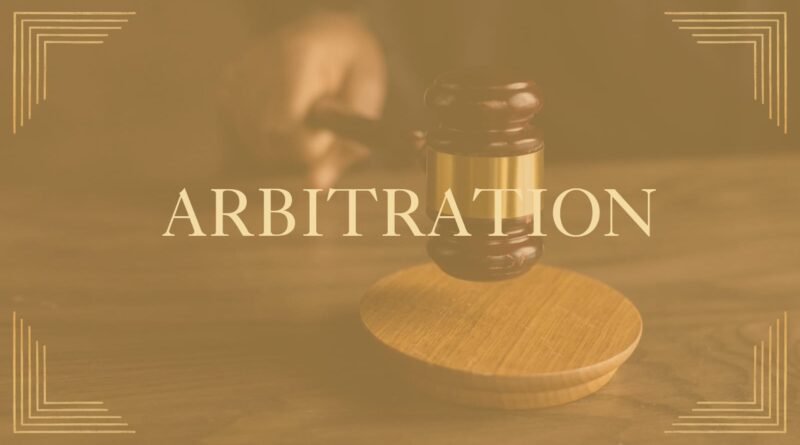Arbitration – Scope of powers under Section 37 including remand
By the Arbitral Award dated 7.9.2018, most of the claims of the respondent were granted. The counter claim of the appellant was rejected.
This Award was challenged in Section 34 AA petition. The learned Single Judge allowed the said petition and set-aside the award. This was set-aside in Section 37 appeal by the Division Bench vide judgment dated 7.7.2023.
HELD that the jurisdiction of the Appellate Court dealing with appeal under Section 37 against the judgment under Section 34 is more constrained than the jurisdiction of the Court dealing with section 34 petition. An order of remand by Section 37 Court can be made only in exceptional cases where remand is unavoidable. The scope of interference in section 34 petition is narrow and that of section 37 is narrower.
It is the duty of the Appellate Court to consider whether Section 34 Court has remained confined to the grounds of challenge that are available in section 34 petition. The ultimate function of the Appellate Court under Section 37 is to decide whether the jurisdiction under Section 34 has been exercised rightly or wrongly.
Considering the nature of the findings of the learned Single Judge, the job of the Appellate Court was to scrutinise said findings and to decide, one way or the other, on merits. However, the matter was remanded by the Appellate Court on the ground that the learned Single Judge did not address several issues raised by the parties.
The object of the Arbitration Act is to ensure that the arbitral proceedings and the proceedings challenging the award are concluded expeditiously. The proceedings have to be cost-effective. The supervisory role of the Courts is very restricted. If the Courts dealing with appeals under Section 37 start routinely passing remand orders, the arbitral procedure will cease to be efficient.
In Para 21 of the Judgment, it was observed “Before we part with the judgment, we must record some serious concerns based on our judicial experience. Case after case, we find that the arbitral proceedings have become synonymous with very bulky pleadings and evidence and very long, time consuming submissions, leading to very lengthy awards. Moreover, there is a tendency to rely upon a large number of precedents, relevant or irrelevant. The result of all this is that we have very long hearings before the Courts in Sections 34 and 37 proceedings.
Para 22 – By way of illustration, we are referring to the factual aspects of the present case. The award runs into 139 pages, section 34 petition was in 93 pages with 151 grounds, Single Bench judgment was of 101 pages with 35 decisions relied on by the parties, in Section 37 Memo of Appeal consisting 46 pages, in all 164 grounds were taken.
Considering the narrow scope of interference under Sections 34 and 37 of the Arbitration Act, we cannot comprehend how there could be 151 grounds in a petition under Section 34 and 164 grounds in an appeal of Section 37. It is not surprising that this appeal has a synopsis running into 45 pages and it contains as many as 54 grounds of challenge.
The time of our Courts is precious, considering the huge pendency. This is happening in a large number cases. All this makes the arbitral procedure inefficient and unfair. It is high time that the members of the Bar show restrain by incorporating only legally permissible grounds in Section 34 petitions and Section 37 appeals. Everyone associated with the arbitral proceedings must remember that brevity will make the arbitral proceedings and the proceedings under Sections 34 and 37 more effective. All that we say that all the stake holders need to introspect. Otherwise, the very object of adopting the UNCITRAL model will be frustrated. We are not called upon to consider whether the arbitral proceedings are cost-effective. In an appropriate case, the issue will have to be considered. Arbitration must become a tool for expeditious, effective and cost-effective dispute resolution.
Judgment dated 8.7.2024 of the Supreme Court in Civil Appeal No.7247 of 2024 of Bombay Slum Redevelopment Corporation Private Limited Vs. Samir Narain Bhojwani with connected matters.




